12 new email marketing trends set to shape 2025
 Ruta, Indre and Arnold discuss the future of email marketing.
Ruta, Indre and Arnold discuss the future of email marketing.
While most people were having a brat summer and perfecting their wide-leg jeans fits, email marketers spent 2024 preoccupied with a different set of trends: AI, inbox regulations, BIMI, and new techniques to attract subscribers.
But with 2025 about to start, what will keep us all busy in the new year? We asked our team to suggest the latest email marketing trends they think will make an impact.
Read on to learn the 12 cutting-edge strategies to help grow your list, boost engagement, and monetize your audience more effectively in 2025 and beyond.
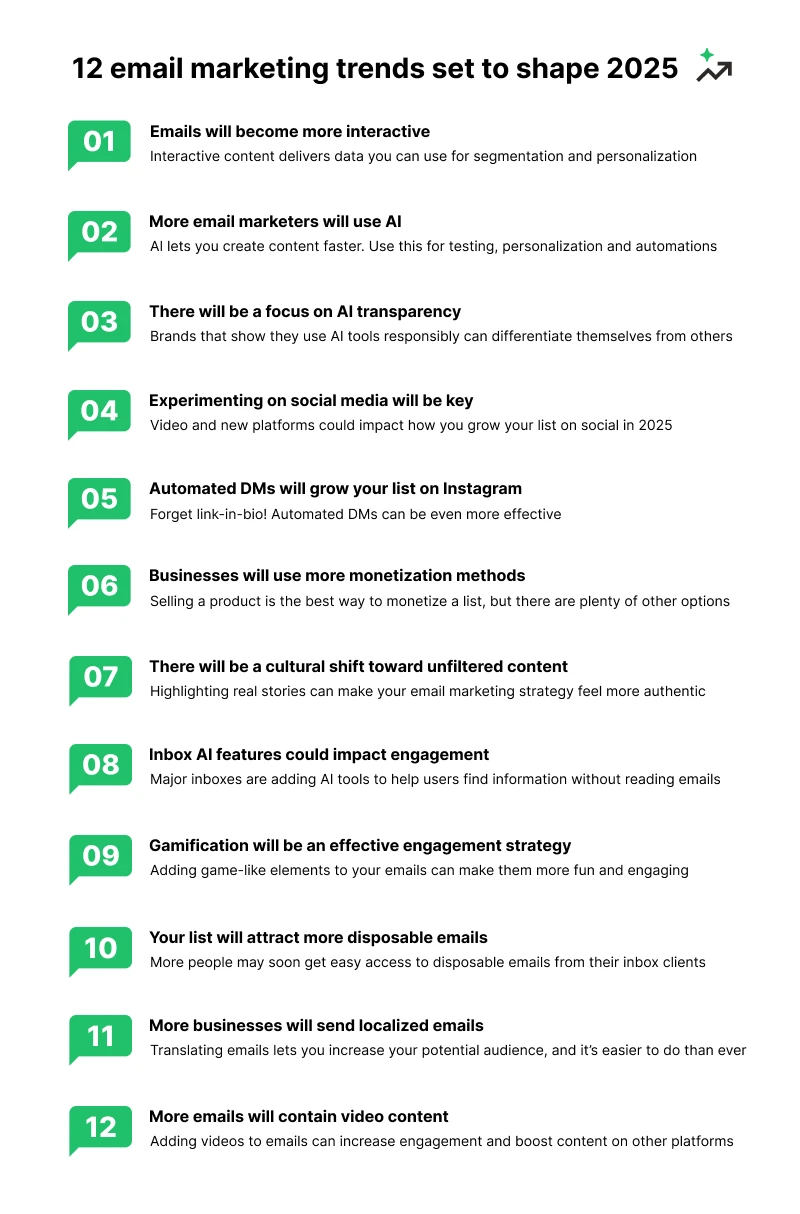
1. Emails will become more interactive
Email marketing specialist Dorota thinks emails will become even more interactive via content such as quizzes, surveys and carousels.
Interactive content can increase engagement. This increased engagement delivers useful real-time data that can be used for strategies like database segmentation and content personalization.
Email content that subscribers can click on and engage with has always been a part of email marketing. But it will become even more important as marketers gain the ability to create targeted experiences with artificial intelligence (AI) and need first-party data to support this.
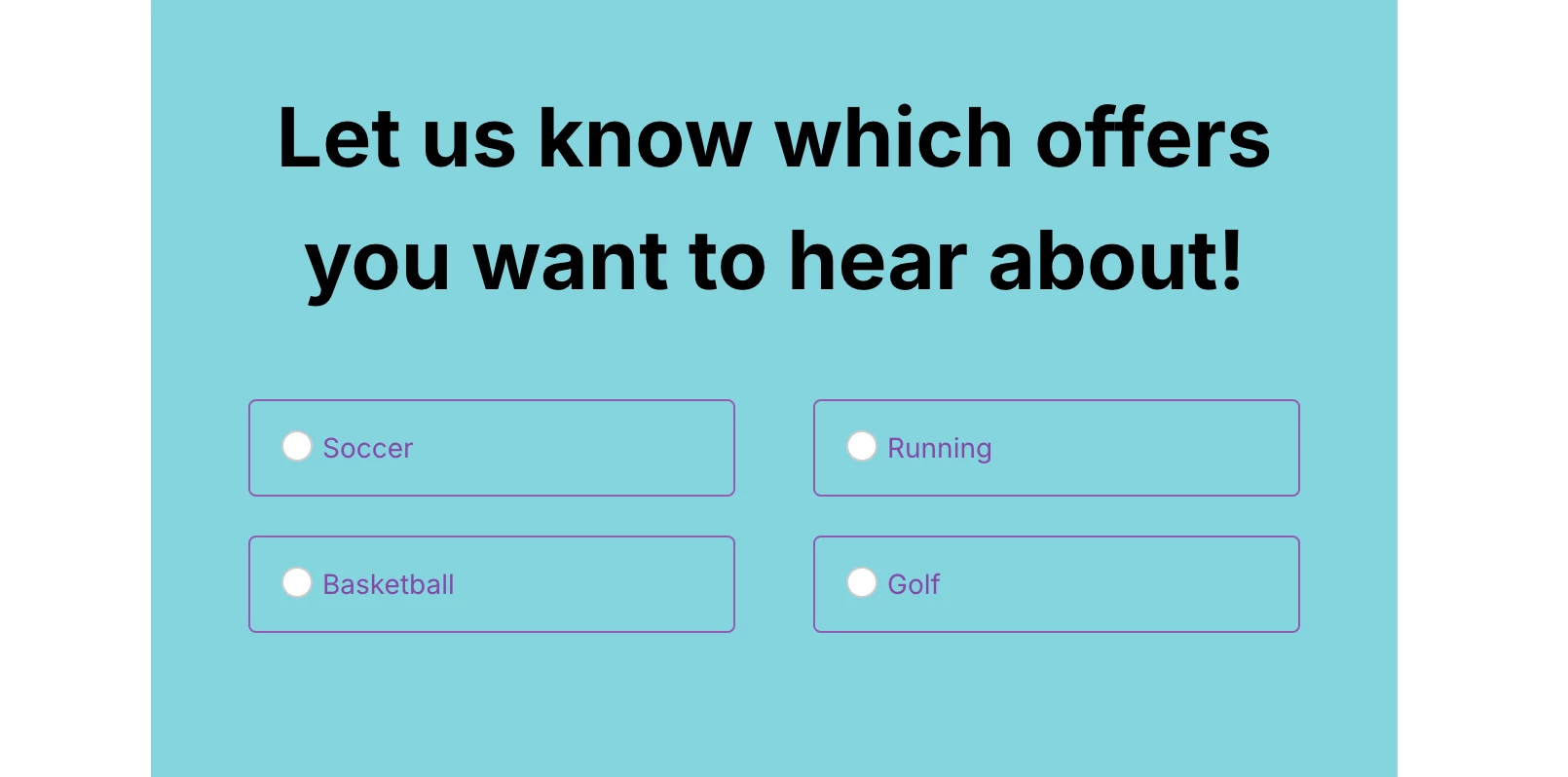
Plus, interactive email elements can make your campaigns more fun for subscribers: It’s a win-win situation.
2. More email marketers will use AI
Ai was a big trend last year, and will likely continue to be one in 2025. As AI tools improve and people learn how to use them, more emails will inevitably include AI-generated content.
AI lets businesses create content faster. When done right, this helps you optimize your email strategy in many ways.
Do more A/B testing
Repurpose content for different segments or groups
Create images based on text
Build email automations faster
In MailerLite, you can easily generate AI content by clicking on the AI icon in any text box. Then just write a prompt describing the text you want to produce.
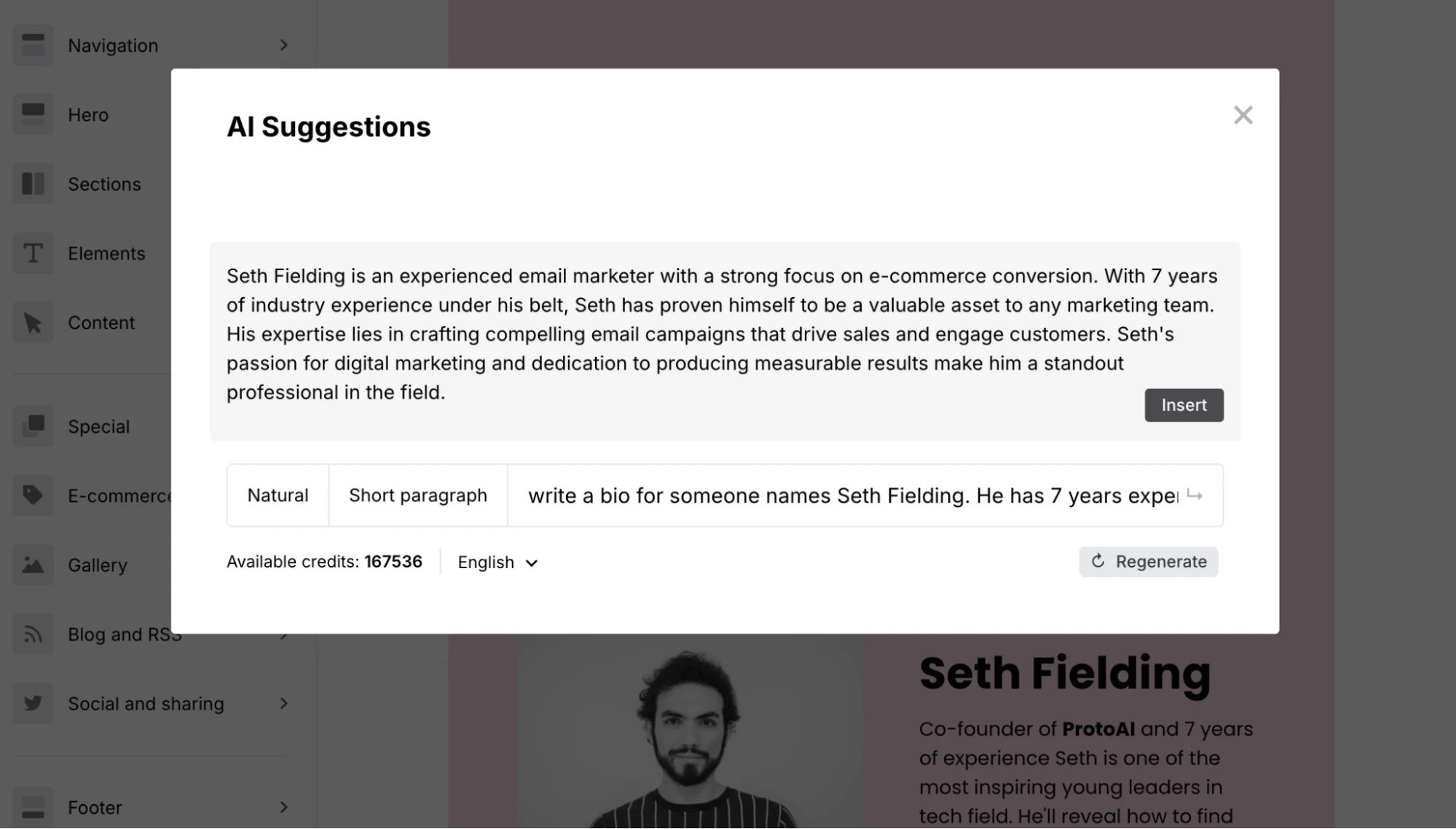
AI and machine learning is also enabling predictive analytics and more personalization. For example, our Smart sending feature analyzes the email engagement behavior of each subscriber to send emails at the perfect time.
Personalization when paired with predictive analytics is also becoming a trend. Tools like AI-powered predictive segments make it easier to deliver a more tailored customer experience.
3. There will be a focus on AI transparency
Our Legal Counsel Cristina thinks that more brands will be transparent about how they use AI in their email marketing.
Companies that do this can effectively differentiate themselves by showing they use the tools responsibly. This is part of an overall focus on trust and privacy that businesses can adopt.
By being upfront about your use of AI, you show your customers that you respect their privacy and are committed to using their data responsibly.
A simple way to increase transparency is to add a section on AI use to your terms and conditions. You could even add a dedicated AI policy to your website. Use this to detail how you use AI and customer data in your business and email marketing.
If you use AI to create your email marketing campaigns, you can also mention it in your sign-up forms and email newsletter.
Learn more about the legal implications of AI use in email marketing, including how to do it in a way that is compliant with GDPR and other data privacy regulations.
4. Experimenting on social media will be key
Social media is one of the most effective ways to grow an email list. Use the exposure offered by these platforms to grow an audience and then convert a percentage of these people into email subscribers.
The issue for email marketers is that algorithms and platforms are always changing, and 2025 will be no different.
We spoke to our social media specialist Chiara to discover what’s new.
She first highlighted that video and short-form videos will continue to become more popular. Discovering ways to use video content to grow your list will be important.
Many platforms are shifting towards short-form video content, including LinkedIn now. By including strong CTAs in videos, marketers can direct viewers to sign up for their email lists.
She also pointed to the maturation of new platforms. Threads has 275 million monthly active users, while BlueSky’s growth rapidly shot up to 20 million recently.
The shift from X to platforms like Bluesky is a good example of how quickly social media can change. For marketers, this shows the importance of keeping up with where your audience is active. Exploring new platforms like Bluesky can help you reach fresh audiences and grow your email list.
Marketers will benefit from being flexible and testing different content formats and platforms until they find something that works.
5. Automated DMs will grow your list on Instagram
Another social media trend is the new automated DM tools that are helping people turn Instagram followers into email subscribers.
Since Instagram doesn’t let people add links to posts, users must look for workarounds when growing their email list. The most common way of doing this is by adding a link in your bio and asking people to check it whenever you post. However, automated DMs can be even more effective.
Link in bios are being overshadowed by automated DMs via tools like ManyChat. These are very powerful tools to share lead magnets and grow your list fast.
To use automated DM tools, first set up an automation that delivers a landing page link to people who comment on your post with a specific phrase.
You then ask your followers to comment with the phrase under your post. As soon as someone comments with the relevant phrase, the automation will send them the link and message.
Not only is this an effective way to send someone a link, but encouraging people to comment on your posts can increase your reach.
6. Businesses will use more monetization methods
Monetizing an email list is always one of the biggest challenges for email marketers. Creating and selling a product is always the best way to monetize a list, but there are plenty of other options if you don’t have a product.
Our email marketing case studies have several examples of people monetizing their lists beyond products.
Because of Marketing founder Rachael Higgins used her engaged list to sell tickets to a recent event. And 100DaysofNoCode’s Max Haining creates learning experiences that he monetizes through affiliate links.
There are other even easier options you can use too. Paved’s recently released MailerLite automation lets MailerLite users add a widget to their email newsletter that automatically places ads in the content.
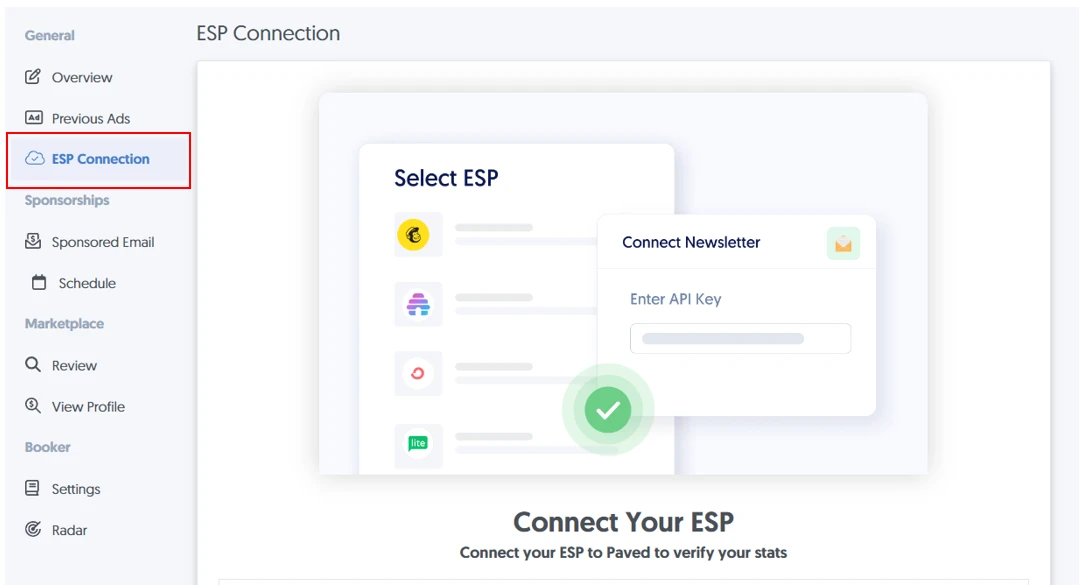
Meanwhile, SparkLoop’s MailerLite integration lets you recommend other newsletters when someone joins your list. You get a payment whenever someone subscribes.
7. There will be a cultural shift toward unfiltered content
Customer education specialist Harmony points to the general shift towards more unfiltered content and predicts we’ll see more of this in emails.
This trend is driven by the increasing influence of Gen Z, a generation that has long been thought to value authenticity highly. Highlighting these real stories can make your email marketing strategy feel more authentic and less like corporate promotion.
Gen Z is leading the shift in content creation that includes conversational tones, sharing real stories, and featuring user-generated content.
Sharing your personal stories is easy: just pack your messages with personal content, images and anecdotes.
If you choose to feature user-generated content, gather this content by using email surveys, social polls, customer interviews, or simply by asking people to respond to your messages. You can then share this in your upcoming emails.
8. Inbox AI features could impact engagement
Both Apple Mail and Gmail are adding AI tools that let customers find information in their emails without actually reading the messages. People can use the tools to search for information across their inboxes or summarize messages.
We tried Gmail’s version for our best AI email tools article, and found it to be hit-and-miss. Sometimes the tool would give the information we wanted, other times it wouldn’t.
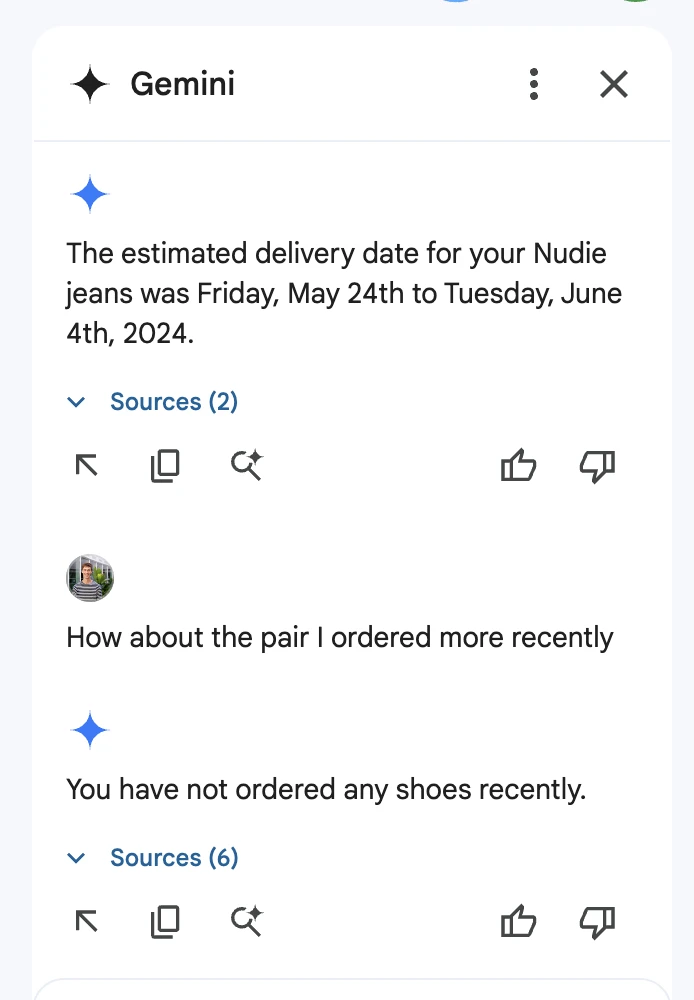
But, if these features take off, it could impact engagement as people won’t need to open emails to get the content they need.
Combat this by including valuable content in your messages so subscribers have a reason to keep opening them.
9. Gamification will be an effective engagement strategy
Marketing manager Andres points to a particular type of email interactivity that he thinks will be effective this year: gamification. This means adding game-like elements to your emails to make them more fun and engaging.
Andres points to 2 strategies that email markers can use to add an element of gamification to their emails.
First is email treasure hunts. He suggests that brands can increase engagement and click-through rates by “creating interactive treasure hunts within emails where subscribers search for hidden discounts or offers.”
Here’s one way we’ve seen this done:
Start your email by telling people to look for a particular emoji in the content.
Mention that clicking on the emoji will take them to an offer or surprise.
You then add the emoji further down your email content.
Link to a landing page with the offer.
See how it could look in the screenshot below.
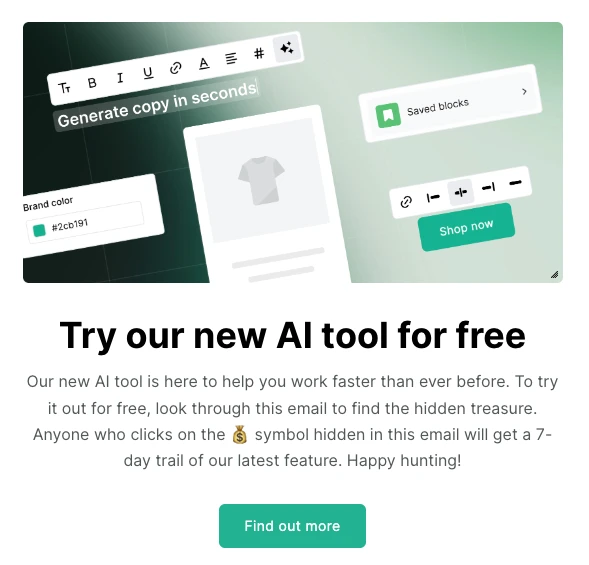
Another option is to create automations that let subscribers choose their own adventure. Subscribers “make choices that lead to different outcomes or rewards while taking part in a narrative experience.”
Set up an adventure by creating an email marketing automation and using conditions to tailor the content each person receives depending on the links they clicked on in the previous email.
10. Your list will attract more disposable emails
Disposable email addresses are nothing new but Gmail doesn’t currently offer them from the app. This is important because Gmail is the most used email inbox in the U.S.
However, recent news reports suggest that Google will add a feature to Gmail called Shielded emails that could give far more people quick access to disposable emails. This could lead to an increase in the prevalence of these addresses on our email lists.
If this happens, you’ll have to be extra vigilant about keeping your email list clean. Luckily, this is super easy to do by regularly removing inactive subscribers.
Do this in MailerLite by heading to the Clean up inactive section in your subscriber’s dashboard and then adjusting the settings around the time period and number of emails sent.
We recommend removing people who haven’t opened any emails in the last 6 months, assuming you’ve been sending regular messages.
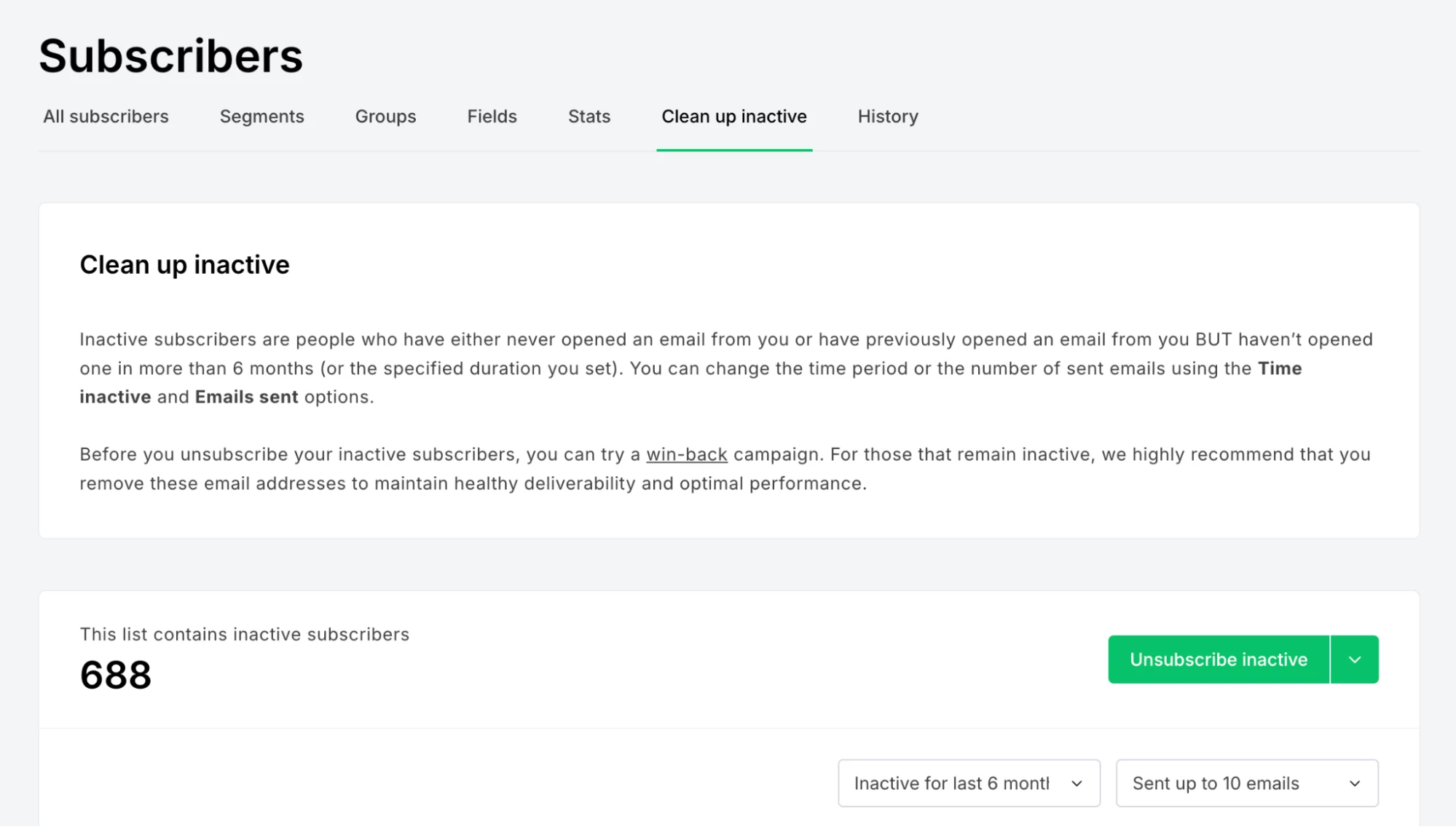
11. More businesses will send localized emails
Translating your emails into another language lets you increase the potential audience for your content. It also improves the experience for existing customers who aren’t fluent in the language you typically publish in.
Until recently, localizing content meant you had to either be fluent in multiple languages, hire a translator, or use an unreliable machine translation service to translate your message.
However, generative AI tools are proficient at translating text to the point where it could enable more businesses, including those that can’t afford language experts, to create content in multiple languages.
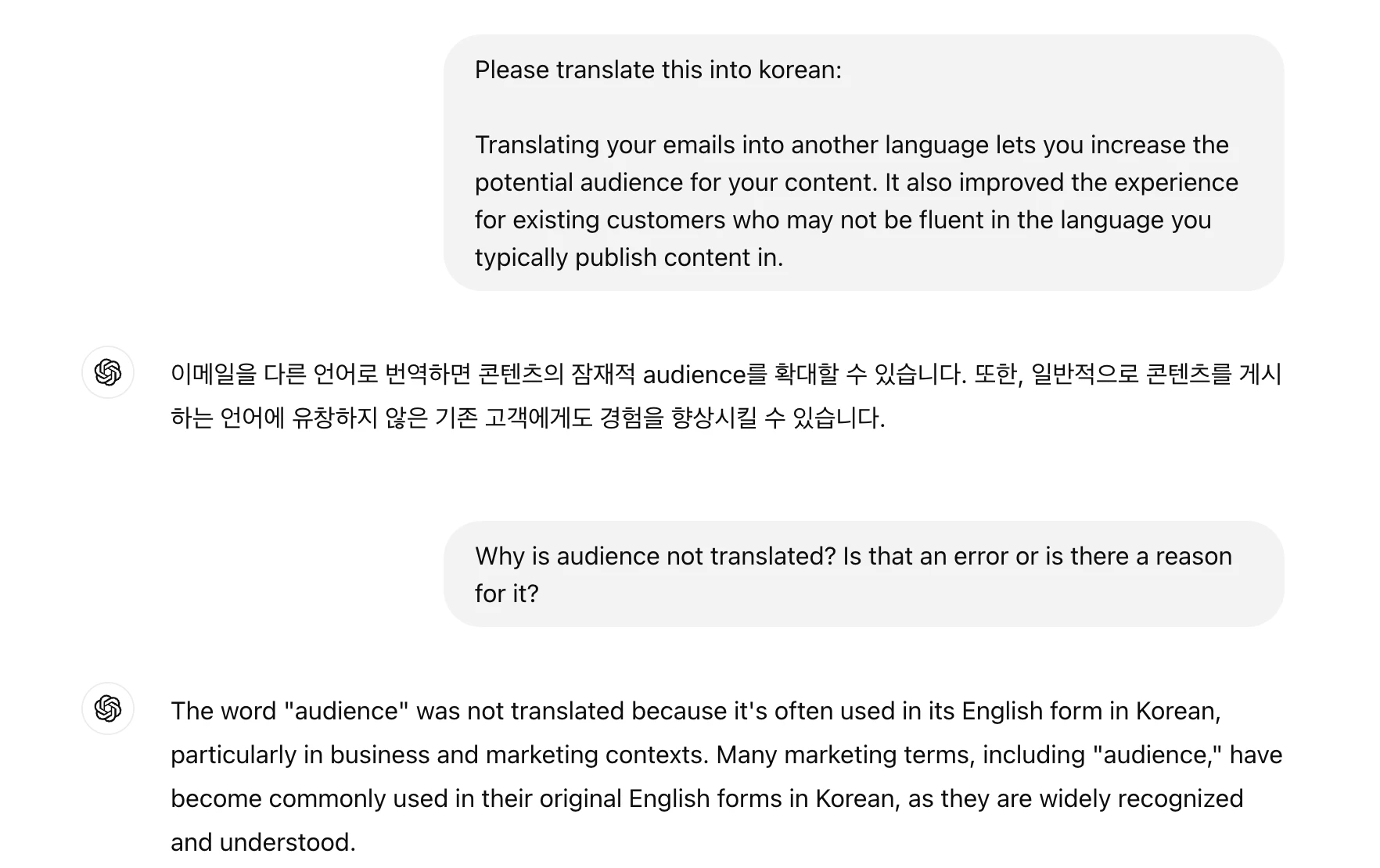
Be aware the generative AI translation isn’t perfect. Translate the text into languages that you or someone on your team is familiar with so you can then read the content to check it's correct and make necessary edits.
You could also increase transparency by clearly highlighting any AI-translated content. Also, consider using a preference center or groups to let people unsubscribe from your AI-translated content while staying on your main email list.
12. More emails will contain video content
MailerLite marketing manager Andres predicts that more emails will contain video. He explains that “adding videos in an email can increase engagement since people need to click to watch it. Also, MailerLite data shows that emails with the word "video" in the subject line tend to have a high open rate.”
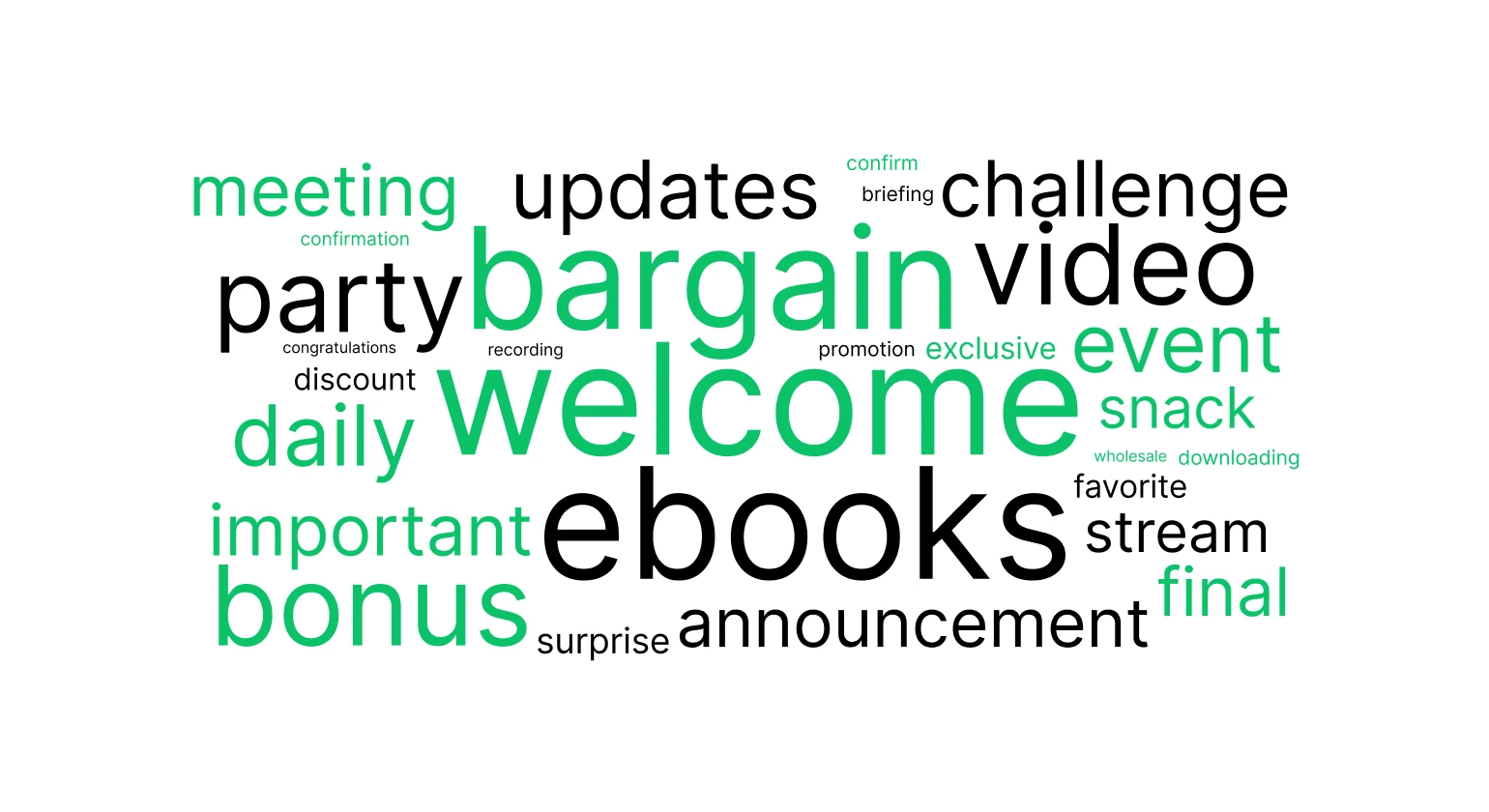
There’s another simple reason why emails could contain more videos: marketers will have more videos to share as the content type grows in importance on other channels.
Like with sharing blog posts, products, or landing pages, sharing links to your videos gets them in front of your most engaged audience. Plus it will give your content an engagement boost that can result in the algorithms showing it to others.
Turn video links into highly-clickable blocks that boost engagement. Our block automatically grabs a short animation of your video and adds a YouTube-style play button to the GIF.
Final word: The fundamentals of good email marketing will stay the same
Our final point comes from our content writer Kerry, who said that “good email marketing in 2025 is the same as good email marketing in 2015.”
Her point is that whatever trends appear, the fundamentals of good email marketing will stay the same.
Speaking to customers, creating content they care about, optimizing your messages for deliverability, and growing your list are essential strategies that are important now and will continue to be in 2025 and beyond.
Those were our 12 predictions. But what are you going to focus on in the next 12 months? Comment below to let us know.
Grow your business with email in 2025
Our cutting-edge email marketing toolkit is here to help you have your best year ever. Hit the button below to start your free trial.
